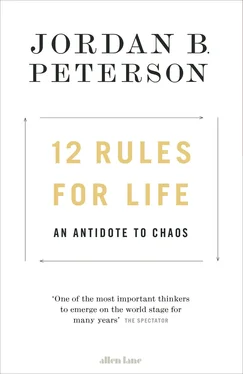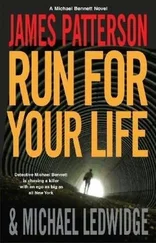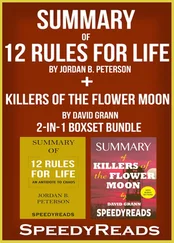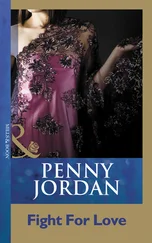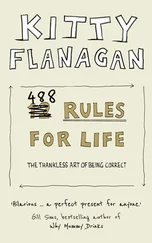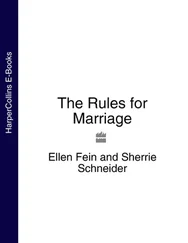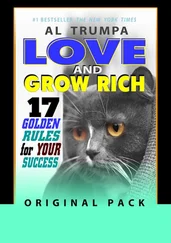Adam and Eve don’t seem very conscious, at the beginning, when they are first placed in Paradise, and they were certainly not self-conscious. As the story insists, the original parents were naked, but not ashamed. Such phrasing implies first that it’s perfectly natural and normal for people to be ashamed of their nakedness (otherwise nothing would have to be said about its absence) and second that there was something amiss, for better or worse, with our first parents. Although there are exceptions, the only people around now who would be unashamed if suddenly dropped naked into a public place—excepting the odd exhibitionist—are those younger than three years of age. In fact, a common nightmare involves the sudden appearance of the dreamer, naked, on a stage in front of a packed house.
In the third verse of Genesis, a serpent appears—first, apparently, in legged form. God only knows why He allowed—or placed—such a creature in the garden. I have long puzzled over the meaning of this. It seems to be a reflection, in part, of the order/chaos dichotomy characterizing all of experience, with Paradise serving as habitable order and the serpent playing the role of chaos. The serpent in Eden therefore means the same thing as the black dot in the yin side of the Taoist yin/yang symbol of totality—that is, the possibility of the unknown and revolutionary suddenly manifesting itself where everything appears calm.
It just does not appear possible, even for God himself, to make a bounded space completely protected from the outside—not in the real world, with its necessary limitations, surrounded by the transcendent. The outside, chaos, always sneaks into the inside, because nothing can be completely walled off from the rest of reality. So even the ultimate in safe spaces inevitably harbours a snake. There were—forever—genuine, quotidian, reptilian snakes in the grass and in the trees of our original African paradise. [18046] Keeley, L. H. (1996). War before civilization: The myth of the peaceful savage . New York: Oxford University Press.
Even had all of those been banished, however (in some inconceivable manner, by some primordial St. George) snakes would have still remained in the form of our primordial human rivals (at least when they were acting like enemies, from our limited, in-group, kin-bonded perspectives). There was, after all, no shortage of conflict and warfare among our ancestors, tribal and otherwise. [18047] “Gradually it was disclosed to me that the line separating good and evil passes not through states, nor between classes, nor between political parties either—but right through every human heart—and through all human hearts. This line shifts. Inside us, it oscillates with the years. And even within hearts overwhelmed by evil, one small bridgehead of good is retained. And even in the best of all hearts, there remains … an unuprooted small corner of evil. Since then I have come to understand the truth of all the religions of the world: They struggle with the evil inside a human being (inside every human being). It is impossible to expel evil from the world in its entirety, but it is possible to constrict it within each person.” Solzhenitsyn, A.I. (1975). The Gulag Archipelago 1918-1956: An experiment in literary investigation (Vol. 2). (T.P. Whitney, Trans.). New York: Harper & Row, p. 615.
And even if we had defeated all the snakes that beset us from without, reptilian and human alike, we would still not have been safe. Nor are we now. We have seen the enemy, after all, and he is us. The snake inhabits each of our souls. This is the reason, as far as I can tell, for the strange Christian insistence, made most explicit by John Milton, that the snake in the Garden of Eden was also Satan, the Spirit of Evil itself. The importance of this symbolic identification—its staggering brilliance—can hardly be overstated. It is through such millennia-long exercise of the imagination that the idea of abstracted moral concepts themselves, with all they entail, developed. Work beyond comprehension was invested into the idea of Good and Evil, and its surrounding, dream-like metaphor. The worst of all possible snakes is the eternal human proclivity for evil . The worst of all possible snakes is psychological, spiritual, personal, internal . No walls, however tall, will keep that out. Even if the fortress were thick enough, in principle, to keep everything bad whatsoever outside, it would immediately appear again within. As the great Russian writer Aleksandr Solzhenitsyn insisted, the line dividing good and evil cuts through the heart of every human being. [18048] The best exploration of this I have ever encountered is to be found in the brilliant documentary about the underground cartoonist Robert Crumb, entitled Crumb , directed by Terry Zwigoff (1995), released by Sony Pictures Classic. This documentary will tell you more than you want to know about resentment, deceit, arrogance, hatred for mankind, sexual shame, the devouring mother and the tyrannical father.
There is simply no way to wall off some isolated portion of the greater surrounding reality and make everything permanently predictable and safe within it. Some of what has been no-matter-how-carefully excluded will always sneak back in. A serpent, metaphorically speaking, will inevitably appear. Even the most assiduous of parents cannot fully protect their children, even if they lock them in the basement, safely away from drugs, alcohol and internet porn. In that extreme case, the too-cautious, too-caring parent merely substitutes him or herself for the other terrible problems of life. This is the great Freudian Oedipal nightmare. [18049] Bill, V.T. (1986). Chekhov: The silent voice of freedom . Allied Books, Ltd.
It is far better to render Beings in your care competent than to protect them .
And even if it were possible to permanently banish everything threatening—everything dangerous (and, therefore, everything challenging and interesting), that would mean only that another danger would emerge: that of permanent human infantilism and absolute uselessness. How could the nature of man ever reach its full potential without challenge and danger? How dull and contemptible would we become if there was no longer reason to pay attention? Maybe God thought His new creation would be able to handle the serpent, and considered its presence the lesser of two evils.
Question for parents: do you want to make your children safe, or strong?
In any case, there’s a serpent in the Garden, and he’s a “subtil” beast, according to the ancient story (difficult to see, vaporous, cunning, deceitful and treacherous). It therefore comes as no surprise when he decides to play a trick on Eve. Why Eve, instead of Adam? It could just be chance. It was fifty-fifty for Eve, statistically speaking, and those are pretty high odds. But I have learned that these old stories contain nothing superfluous. Anything accidental—anything that does not serve the plot—has long been forgotten in the telling. As the Russian playwright Anton Chekhov advised, “If there is a rifle hanging on the wall in act one, it must be fired in the next act. Otherwise it has no business being there.” [18050] Costa, P.T., Teracciano, A. & McCrae, R.R. (2001). “Gender differences in personality traits across cultures: robust and surprising findings.” Journal of Personality and Social Psychology, 81 , 322-331.
Perhaps primordial Eve had more reason to attend to serpents than Adam. Maybe they were more likely, for example, to prey on her tree-dwelling infants. Perhaps it is for this reason that Eve’s daughters are more protective, self-conscious, fearful and nervous, to this day (even, and especially, in the most egalitarian of modern human societies [18051] Isbell, L. (2011). The fruit, the tree and the serpent: Why we see so well. Cambridge, MA: Harvard University Press; see also Hayakawa, S., Kawai, N., Masataka, N., Luebker, A., Tomaiuolo, F., & Caramazza, A. (2011). “The influence of color on snake detection in visual search in human children.” Scientific Reports, 1 , 1-4.
). In any case, the serpent tells Eve that if she eats the forbidden fruit, she won’t die. Instead, her eyes will be opened. She will become like God, knowing good from evil. Of course, the serpent doesn’t let her know she will be like God in only that one way. But he is a serpent, after all. Being human, and wanting to know more, Eve decides to eat the fruit. Poof! She wakes up: she’s conscious, or perhaps self-conscious, for the first time.
Читать дальше
